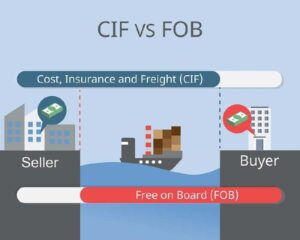Table of Contents
ToggleFOB vs CIF
What is CIF in Shipping and Trading?
How CIF Works
Hermes Petro Refinery, established in the 2000s, has achieved steady growth through its highly experienced workforce, global collaborations, and cutting-edge technology. This state-of-the-art facility exemplifies efficiency, sustainability, and power, transforming raw resources into vital energy sources.

FOB vs CIF
Hermes Refinery represents a remarkable fusion of innovation and environmental responsibility. Its imposing infrastructure symbolizes progress and its commitment to a cleaner, prosperous future.
With meticulous engineering and unwavering dedication, Hermes Refinery sets new standards in refining while prioritizing environmental stewardship.
By harnessing years of experience and expertise, Hermes Refinery aims to become a prominent Iranian production complex, serving the homeland and forging partnerships with large companies worldwide.
It seeks to foster collaborations, exchange information and technology, and meet the diverse product requirements of its business partners. We invite you to join forces with us, benefiting from the exceptional capabilities of Hermes Refinery.
Together, we can achieve excellence, with our main focus being your success. Hermes Company currently operates offices in Shiraz and Tehran, Bandar Abbas, Turkey and Oman.
visit our products.




